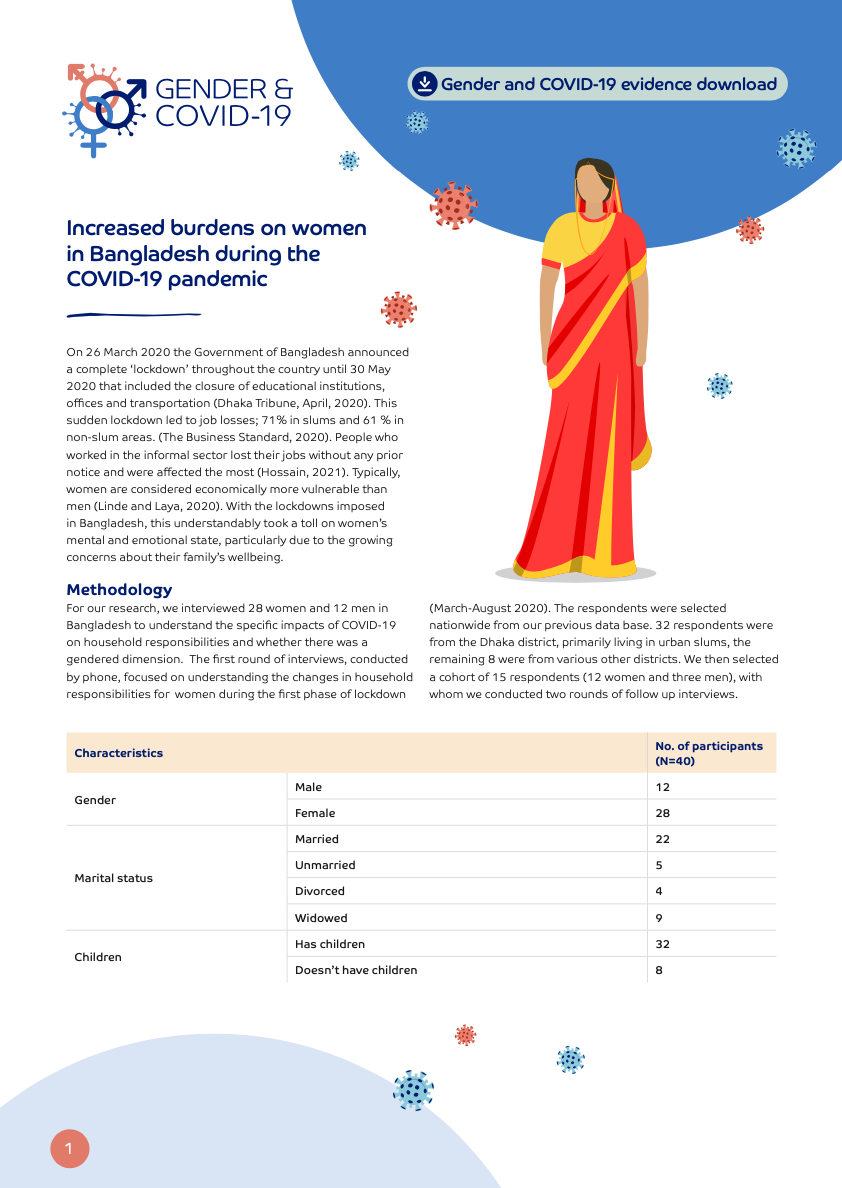On 26 March 2020 the Government of Bangladesh announced a complete ‘lockdown’ throughout the country until 30 May 2020 that included the closure of educational institutions, offices and transportation (Dhaka Tribune, April, 2020). This sudden lockdown led to job losses; 71% in slums and 61 % in non-slum areas. (The Business Standard, 2020). People who worked in the informal sector lost their jobs without any prior notice and were affected the most (Hossain, 2021). Typically, women are considered economically more vulnerable than men (Linde and Laya, 2020). With the lockdowns imposed in Bangladesh, this understandably took a toll on women’s mental and emotional state, particularly due to the growing concerns about their family’s wellbeing.
Our findings showed that in terms of household workload, women tend to take on more responsibilities than their male counterparts. Many women had to put up with this increased workload without any kind of support during the lockdown. Our initial findings show that both men and women are used to the notion that the household responsibilities are women’s; men are not accountable for doing anything. They are used to this dynamic of work distribution in the family. This is a common practice of gender roles in patriarchal society, women are most likely to take responsibility for household chores (Fikree and Pasha, 2004). Their constant labour in the house comes with a significant impact on their health and wellbeing and in most cases, their well-being is overlooked. Moreover, this workload also has an impact on their mental health,
with women having noticeably higher amounts of distress compared to men in general (Matud, 2004).
Increased burdens on women in Bangladesh during the COVID-19 pandemic






